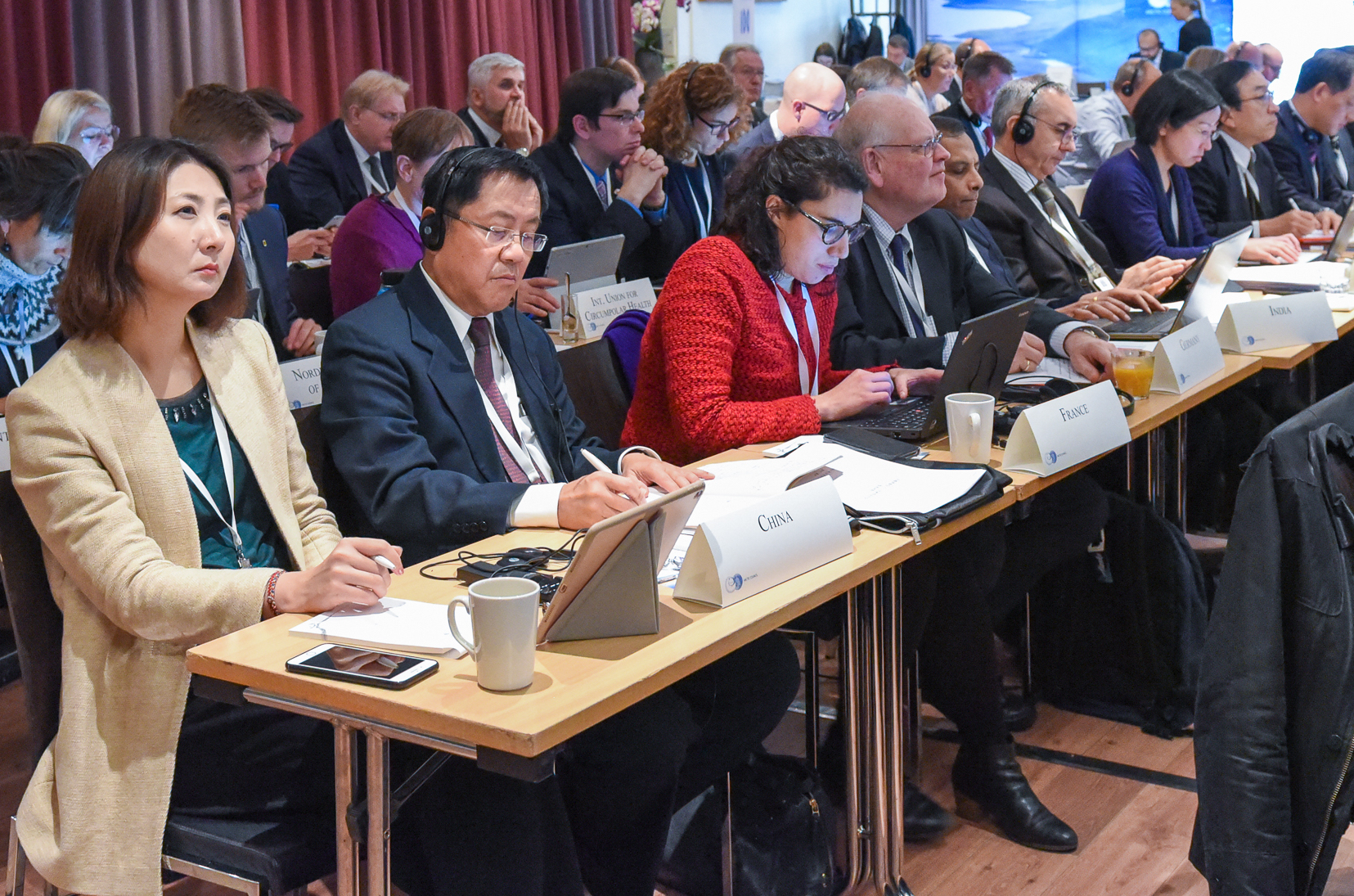Estonia is applying to become an Arctic Council observer
The Baltic nation, one of the northernmost without Arctic territory, has both security and economic interests in the region.

Estonia will seek to become an Arctic Council observer, that country’s foreign ministry has announced.
“Considering the increasing challenges from the Arctic, it is a chance for Estonia to get more involved internationally with topics related to the Arctic,” Urmas Reinsalu, the foreign minister, said in a statement released last week.
Estonia already has a few Arctic connections. It enjoys close ties to Finland, it’s one of the world’s northernmost non-Arctic nations, and it’s also one of just a handful of nations to operate icebreakers. And if a controversial Finnish rail project linking Norway’s Arctic coast to Europe via tunnel gets built, Estonia could become mainland Europe’s gateway for some Arctic shipping.
While the Baltic country’s geographic location make security issues one of its main motivations for seeking observer status, the county also has economic and scientific interests related to the region, including fisheries, logistics and green technology, the foreign ministry stated.
FM @UrmasReinsalu: #Estonia’s applying for an observer status in the @ArcticCouncil. 🇪🇪 is the northernmost non-Arctic country, affected by geopolitical developments in the region. Protecting the #Arctic doesn’t only fall to Arctic countries, but also those close by. pic.twitter.com/oTuDl5QzJC
— Estonian MFA 🇪🇪 | 🌻 #StandWithUkraine (@MFAestonia) November 14, 2019
Estonia, according to Reinsalu, hopes that membership would provide the country’s scientists and companies with more opportunities to participate in the work being done in the region.
“Ensuring the sustainable development of the Arctic requires cooperation between states and extensive political support, and this should not be a task of Arctic states alone,” he said. “Instead, it should also include countries and international organisations close to the Arctic.”
Estonia first began mulling observer status in 2014, at a time when the region began taking on increasing political and strategic importance.
[After 20 years, the Arctic Council reconsiders the role of observers]
Then-foreign minister Urmas Paet, who is currently a member of the European parliament active in Arctic issues, was pleased that Estonia is now taking the final step towards becoming an observer.
“The Arctic is becoming increasingly significant in terms of geopolitics and the developments there have a direct impact on Estonia and Europe as well. This is why it is worth considering all diplomatic opportunities to have a say in the future of the region,” Paet said.
Paet believes Estonia could contribute to maintaining stability in the Arctic at a time of increased Russian military activity and growing commercial interest.
“The melting of the ice cover is providing access to new oil and gas deposits in the Arctic and the exploitation of these will also lead to potential tensions between countries,” he said.
[Will the Arctic Council begin addressing national security?]
Should Estonia be accepted, it would join the 13 other states that have been admitted as observers since the council’s establishment in 1996. A further 26 organisations hold observer status. Observers must support the objectives of the council and be deemed capable of contributing to its work.
A decision about whether to grant Estonia observer status will be made by the eight member states during the council’s 2021 biennial meeting.